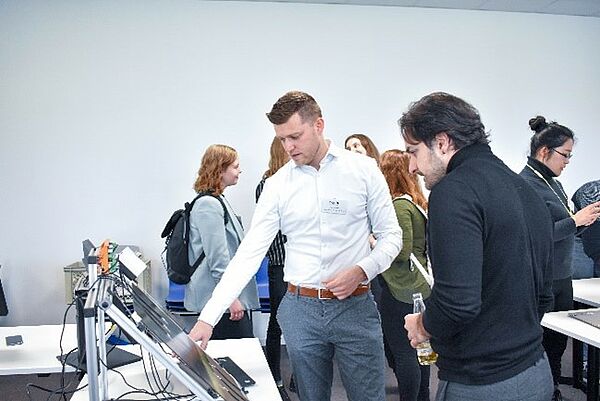Artificial Intelligence (AI) is ubiquitous in our society and an important driver of economic growth. This brings societal and technological challenges, as the increasing prevalence of AI in society may limit human autonomy instead of supporting it. AI could influence individual human behaviour as well as societal norms and structures in unprecedented ways. These challenges lead to a need for sustainable AI; AI that is transparent, leaves room for human agency, and is safe, robust and resource-efficient.
On 22.03.2023, Prof. Dr. Barbara Hammer (University of Bielefeld) and Prof. Dr. Axel Ngonga (University of Paderborn) welcomed the participants of the SAIL kick-off event. The inIT was also actively involved. Prof. Dr. Helene Dörksen spoke on the topic of animal welfare and sustainable agriculture and showed how Machine Learning can contribute to counteracting the shredding of male chicks worldwide. Prof. mult. Dr. Carsten Röcker introduced the SmartFactoryOWL, research assistant Julian Knaup presented banknote authentication using intaglio structures and multi-sensor quality control of aircraft surfaces, and research assistant Andreas Besignow addressed Gaussian processes.
About SAIL (Sustainable Life-Cycle of Intelligent Socio-Technical Systems)
The long-term goal of the network is to usher in the next wave of AI in intelligent socio-technical systems (ITS) by addressing societal, cognitive and technological requirements. Current systems that use AI technology primarily target the deployment phase, where a core component is the training and adaptation of AI models based on given sample data. SAIL's focus on the whole life cycle shifts the current focus towards sustainable, long-term development in real life. SAIL aims to conduct high-quality basic research to develop crucial components of human-centred, sustainable ITS; implement a strong transfer chain towards ITS applications of particular societal and industrial relevance; and further strengthen the structure of the network into an internationally unique lighthouse in NRW for ITS. Further information at: SAIL.


